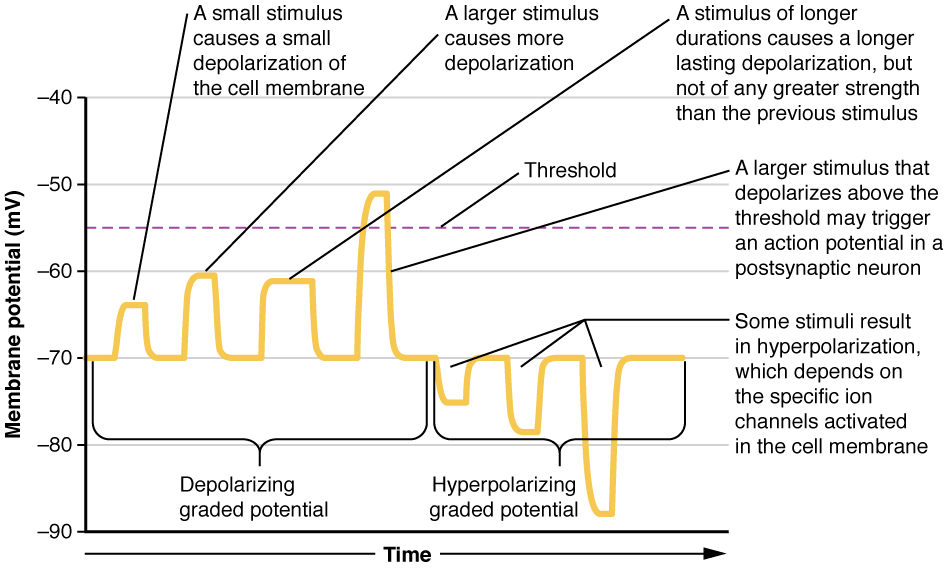Graded potentials are temporary changes in the membrane voltage, the characteristics of which depend on the size of the stimulus. Some types of stimuli cause depolarization of the membrane, whereas others cause hyperpolarization. It depends on the specific ion channels that are activated in the cell membrane.

Figure 6. Graded Potentials. Graded potentials are temporary changes in the membrane voltage, the characteristics of which depend on the size of the stimulus. Some types of stimuli cause depolarization of the membrane, whereas others cause hyperpolarization. It depends on the specific ion channels that are activated in the cell membrane.
Graded potentials may also be summed. This means their effects may be combined. If two different stimuli stimulate the cell at about the same time and close by but in different places, their effects may be combined. This summation is called spatial summation. Think of a parent who has two children asking the same thing at the same time ("Dad, we want a popsicle. Daaadd"). Or, one stimulus may repeatedly stimulate a cell. This is called temporal summation - a single stimulation at one place on the neurolemma over and over. Think of when a single child repeatedly tugs at his Mother's sleeve saying "Mom, Mom, Mom, Mom,... " over and over - the parent could get to the point of saying "What?!" very loudly? She has reached her threshold, showing that the repeated stimulations may be added together to make an action potential, or in this case get a reaction. Whether or not a neuron fires an action potential or not depends on the combined effect of all incoming stimuli, both excitatory and inhibitory. Whether or not an action potential is fired depends on the combined effect of all incoming stimuli; if it is enough to reach the neuron's threshold level.

Figure 7. The excitation-contraction coupling effects of successive motor neuron signaling is added together which is referred to as wave summation.
| Action Potential | Graded Potential |
|---|---|
|
All-or-none |
Graded |
|
Threshold |
Graded |
|
Involve the entire cell |
Local |
|
Refractory Periods |
Can be summed |
|
Always depolarization, repolarization, hyperpolarization |
Can be in both directions |
|
Entire cell experiences action potential |
Decremental conduction |

